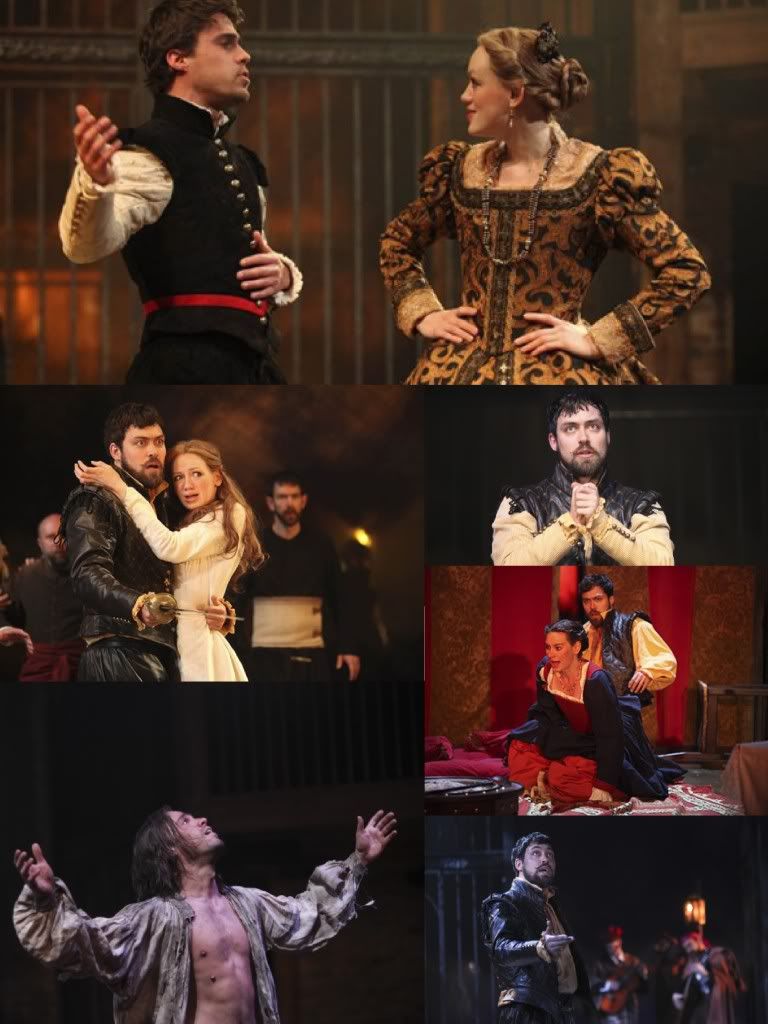If the promise of Gregory Doran and the Swan and theatrical ‘archaeology’ wasn’t enough, having seen Double Falsehood at the Union Theatre in January made Cardenio a must see for me. In the end though, the last of these I think proved more of a hindrance than a help and I’ve found myself increasingly unable to separate my thoughts about one from my thoughts about the other. Which has made it rather difficult to work out truly how I felt about this.
What’s been really odd about this effect is that I rather enjoyed Double Falsehood despite its rather obvious flaws, but the constant echo of the earlier production, made me feel like I was seeing Cardenio through a distorted lens. There were a lot of similarities between the two, especially in the dialogue, and though I suppose this was understandable and to be expected, for some reason I had rather expected a greater departure.
The area where it does most noticeably alter from Double Falsehood is in the infamous rape scene – here presented more as a broken promise, though Dorotea is a reluctant receiver of Fernando’s attentions at first (there is a wonderful sequence which apes the famous balcony scene but ends in rejection), she is convinced at last with false promises of marriage. In many ways this is a much more logical approach, it makes more sense of her desire to pursue Fernando and allows the audience to feel satisfaction at the ‘happy’ conclusion rather than discomfort. However, I did find myself missing the visceral horror that the rape provoked for me at the Union earlier in the year, especially in the later attempted rape by the shepherd which left me feeling physically sickened. Bizarrely the Swan audience on the night we attended greeted this scene with laughter (what audience doesn’t enjoy a comedy rape?). I can’t really explain my reaction, but somehow it felt like they were softening the play too much and though Pippa Nixon again did an excellent job, I found myself less invested and less passionately moved by Dorotea’s fate.
That said there was a lot to love in the production, as well as Nixon, Alex Hassell was excellent, impressively mixing arrogance, bloody mindedness, and manipulative and childish petulance (the moment when he sprung from the coffin and forced Lucinda inside was a favourite if only for making me shudder). I also thought newcomer Oliver Rix produced a convincing turn with one of the more difficult roles in the play. I greatly enjoyed Nicholas Day and Christopher Godwin as the warring fathers, producing one of the most effective comic scenes in the play. And finally, despite being a small role, I thought Felix Hayes was excellent again – he’s certainly the actor so far in this ensemble I’d watch out for in the future.
The production elements were beautiful – I fell in love with the set, costumes and lighting, which working together created something of the feel of a baroque painting. The music too, provided by some exceptionally talented flamenco performers added huge amounts to the atmosphere of the production. Plus between them having fireworks exploding inside, the wafting smell of incense and ending with a jig, I was utterly enamoured.
I’m still not convinced by the strength of the play itself, no matter what form it takes, but there was enough in this production for me to look past that and fall in love anyway.

No comments:
Post a Comment